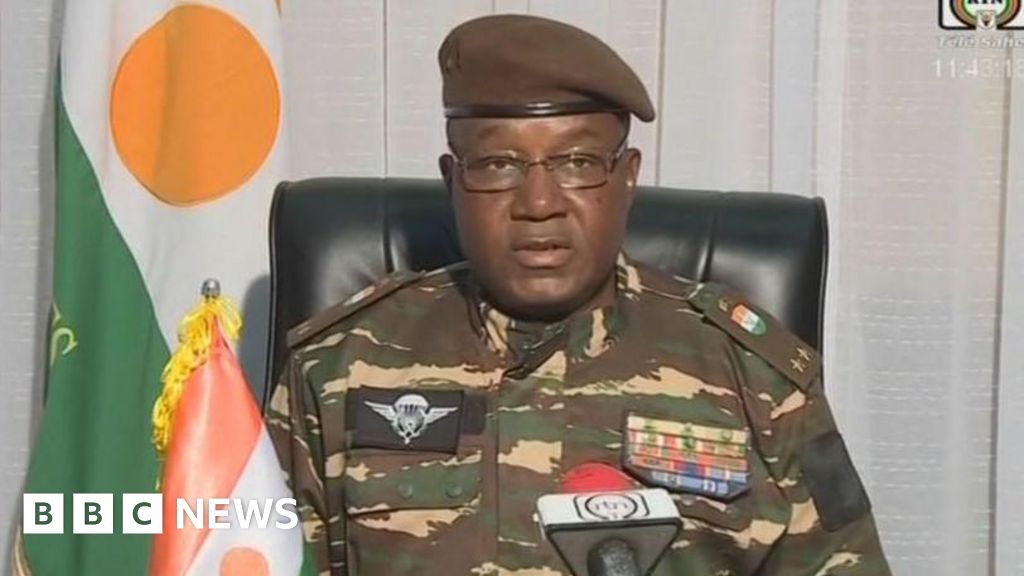Niger’s military government has suspended the BBC for three months, accusing it of spreading fake news that could destabilise social peace and demoralise troops fighting jihadists.
Niger’s Minister of Communication Raliou Sidi Mohamed announced that the decision would take effect immediately.
BBC programmes, including in Hausa, the most spoken language in Niger, and French, are broadcast in the country through local radio partners, reaching 2.4 million people in the country this year – about 17% of the adult population.
Although BBC radio programmes have been suspended, the website is not blocked and the radio can still be accessed on shortwave.
Niger’s government did not cite a specific broadcast for the suspension but it follows BBC reports about jihadist attacks in the Tillaberi region on Tuesday, which are said to have killed 91 soldiers and nearly 50 civilians.
The junta called these reports “baseless assertions” and a “campaign of intoxication orchestrated by adversaries of the Nigerien people aimed at undermining the morale of our troops and sowing division”.
The attacks were reported by multiple sources, including security blogs, which said the gunmen, believed to be allied to the Islamic State group, launched two simultaneous attacks in Chatoumane village.
In one of the attacks, the attackers are reported to have disguised themselves as civilians and opened fire at soldiers on patrol in the weekly market. The soldiers could not return fire directly because of the risk of collateral damage.
A BBC spokesperson said: “We stand by our journalism and we will continue to report on the region without fear or favour.”
French outlets, France24 and Radio France Internationale (RFI), have also been suspended in Niger since the military seized power in a coup in July 2023.
The junta is under pressure for failing to curb militant attacks, one of its justifications for deposing democratically elected President Mohamed Bazoum in July 2023.
Niger’s government also announced plans to “file a complaint” against RFI for “incitement to genocide”.
It claimed that RFI was a propaganda mouthpiece for former colonial power France.
RFI described the complaint as “extravagant and defamatory” and said it wasn’t based on any evidence.
Niger did not say where it planned to lodge the complaint against RFI.
West African neighbours Niger, Burkina Faso and Mali have all experienced coups in recent years. All of these military-led governments have suspended foreign media at some point since taking power.
The BBC was also suspended by Burkina Faso over its coverage of a report accusing its army of mass killings.
They are facing an insurgency made up of different jihadist groups which operate across the Sahel region of West Africa. Tillaberi is a particularly volatile area, near the borders with Mali and Burkina Faso.
The Sahel region is considered the new global epicentre of the Islamic State group, while groups linked to al-Qaeda also operate in the region.
The three countries have formed an alliance to fight the jihadists and expelled French troops, turning to Russia and Turkey instead for their security needs.
But the violence has continued.


